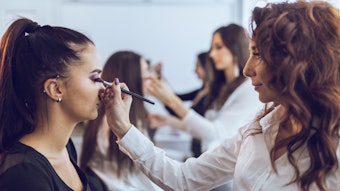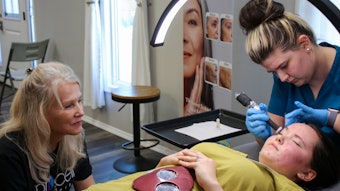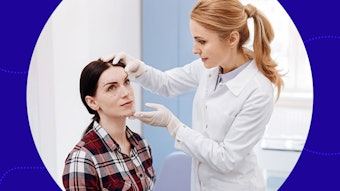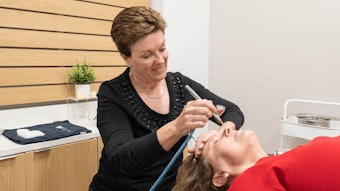In an esthetic environment, whether it be a day spa, medical spa or medical practice, clients have become consumers of care. They are quite knowledgeable about the various types of lasers and their indications for use, different peel solutions available to treat various skin conditions, and different procedures available to treat cosmetic or medical concerns. Therefore, it is important to have a staff that is familiar with all of the services that are offered and available alternative treatments, as well as uses and benefits of the skin care product lines you sell, and the latest trends in your particular area of expertise.
Education is essential
An educated team is essential to the success of any spa. It is important that staff members understand your particular spa’s philosophy of skin health, the benefits of the treatments provided and how they compare to other services that may be available elsewhere, as well as which topical agents are effective and ineffective when working with skin.
Educating your staff is a win-win for both the business and the team. An educated staff member is more confident when speaking with clients, is better equipped to effectively communicate and respond to inquiries in order to increase productivity through the promotion of products and services, and is up-to-date on the newest trends, competition, and products and technologies available to consumers. Also, they are better suited to educate clients, which, in turn, leads to enhanced compliance, safety, satisfaction and, ultimately, client retention. The education of staff may be accomplished in several ways.
Informal education. Does someone on your team have specific knowledge that would benefit other team members? Does your spa have a relationship with local physicians? Ask them to share their time and ideas with your staff. Would they be open to allowing your spa’s estheticians and dermatologic nurses to tag along in the operating room, examining room and at professional meetings? Studying in school has merit, of course, but there’s no replacement for the real world.
Training by outside vendors. Your skin care product and esthetic equipment suppliers should be able to provide advanced training for your staff. (Editor's note: For a complete list of spa suppliers, log on to our online Buyer's Guide) Inquire whether the supplier can educate about everything from product knowledge to skin physiology, delivery systems and ingredient technology. Some vendors will want to educate your staff on only their products, but that’s not enough. Ask them to share their ideas on physiology or retail sales. Be sure to ask them how other spas are addressing problems. If visiting your spa isn’t practical, ask them to schedule a webinar—or find out what professional training they offer online.
Conferences. Allow team members to attend conferences or seminars within a designated specialty, such as esthetics or esthetic medicine. Consider holding sales contests to cover their cost of travel and registration, so that you’re rewarding your high-achievers.
Language skills. Encourage your team members to learn a second language. Language preference should be based upon your particular client demographic.
Social networking. Some team members and consultants are very savvy, knowing what works with Twitter and Facebook, and what doesn’t. Even though social networking is something that most weren’t taught in school, it’s essential today. Now is a good time to jump in.
Zein Obagi, MD, is a practicing dermatologist in Beverly Hills, California. He created the Obagi Nu-Derm line more than 25 years ago, and his most recent product innovation is ZO Skin Health by Zein Obagi, MD.










